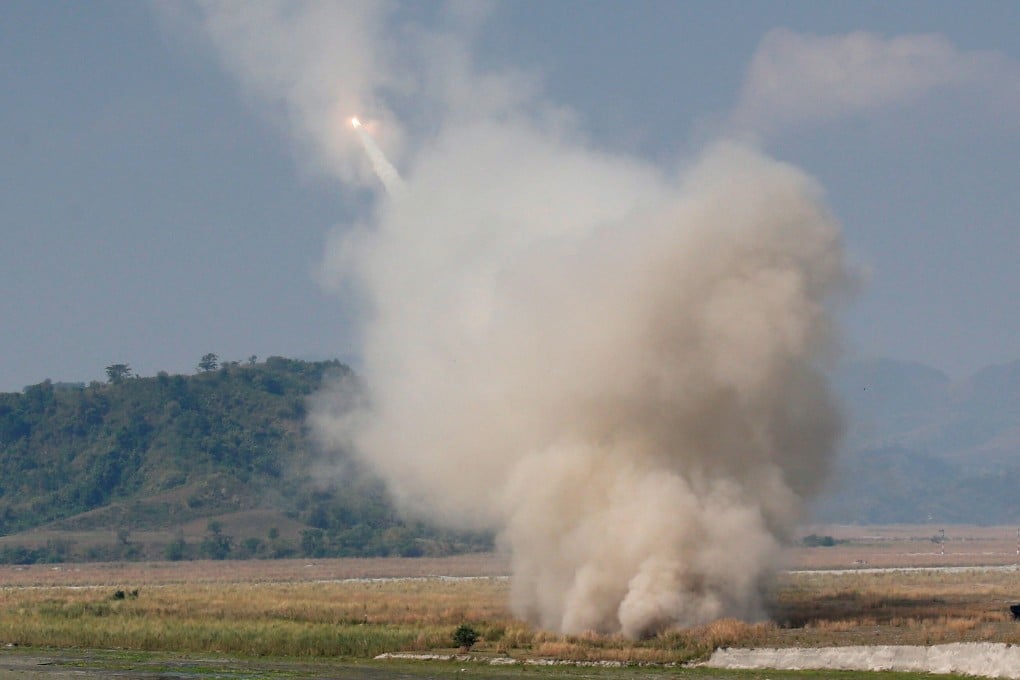Advertisement
US weapons in Taiwan deal could slow mainland China attack: analyst
- Advanced weapons could complicate a PLA campaign, says Hong Kong-based military commentator
- Beijing has threatened to retaliate over pending weapons sale which it says undermines its sovereignty and security
Reading Time:2 minutes
Why you can trust SCMP

A pending weapons sale by the United States to Taiwan could complicate a potential military campaign by the People’s Liberation Army (PLA) against the self-ruled island, a military analyst said.
In the approach to the US presidential election in November, President Donald Trump’s administration has sent the deal to Congress for approval, with clearance expected soon, according to reports by Reuters and Defense News.
The package would provide Taiwan with the High Mobility Artillery Rocket System (HIMARS), Standoff Land Attack Missile-Expanded Response (SLAM-ER) and external sensor pods for F-16 jets.
Advertisement
Lockheed Martin’s HIMARS is a lightweight truck-based platform that fires six 227mm rockets with GPS-guided high-strike precision. The platform could also fire the MGM-140 Army Tactical Missile System, which has a range of up to 300km (186 miles).
The SLAM-ER by Boeing is a long-range, air-to-surface cruise missile that can be carried by fighters to attack targets on land or sea, stationary or moving, from beyond visual range. It carries a 274kg (604lb) warhead, is guided by GPS and infrared imaging and has a range of 280km.
Advertisement
The sensor pod for Taiwan’s F-16A/B would enable the fighters to send images and data from the aircraft back to ground stations in real time and greatly improve the warplane’s situation analysis and ability to hit a target.
Advertisement
Select Voice
Select Speed
1.00x